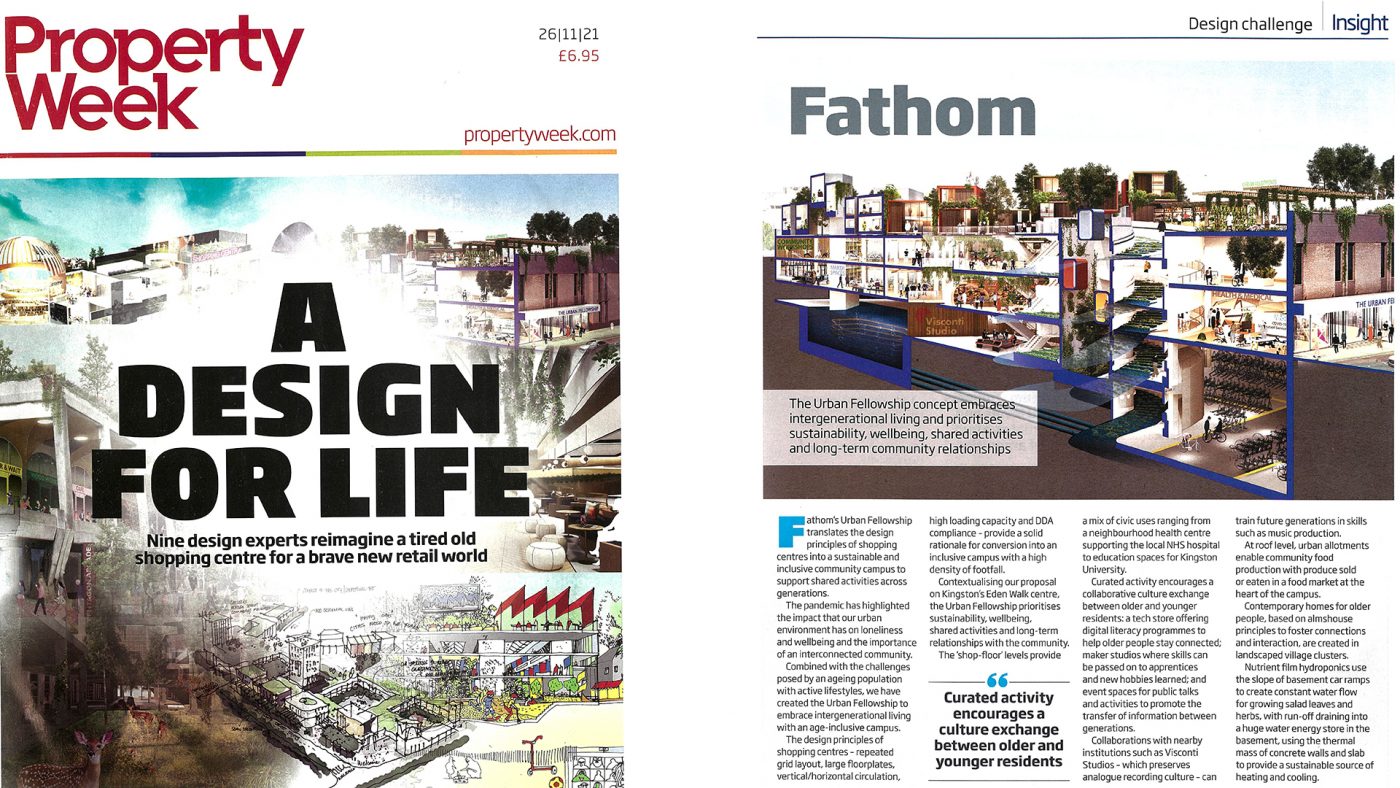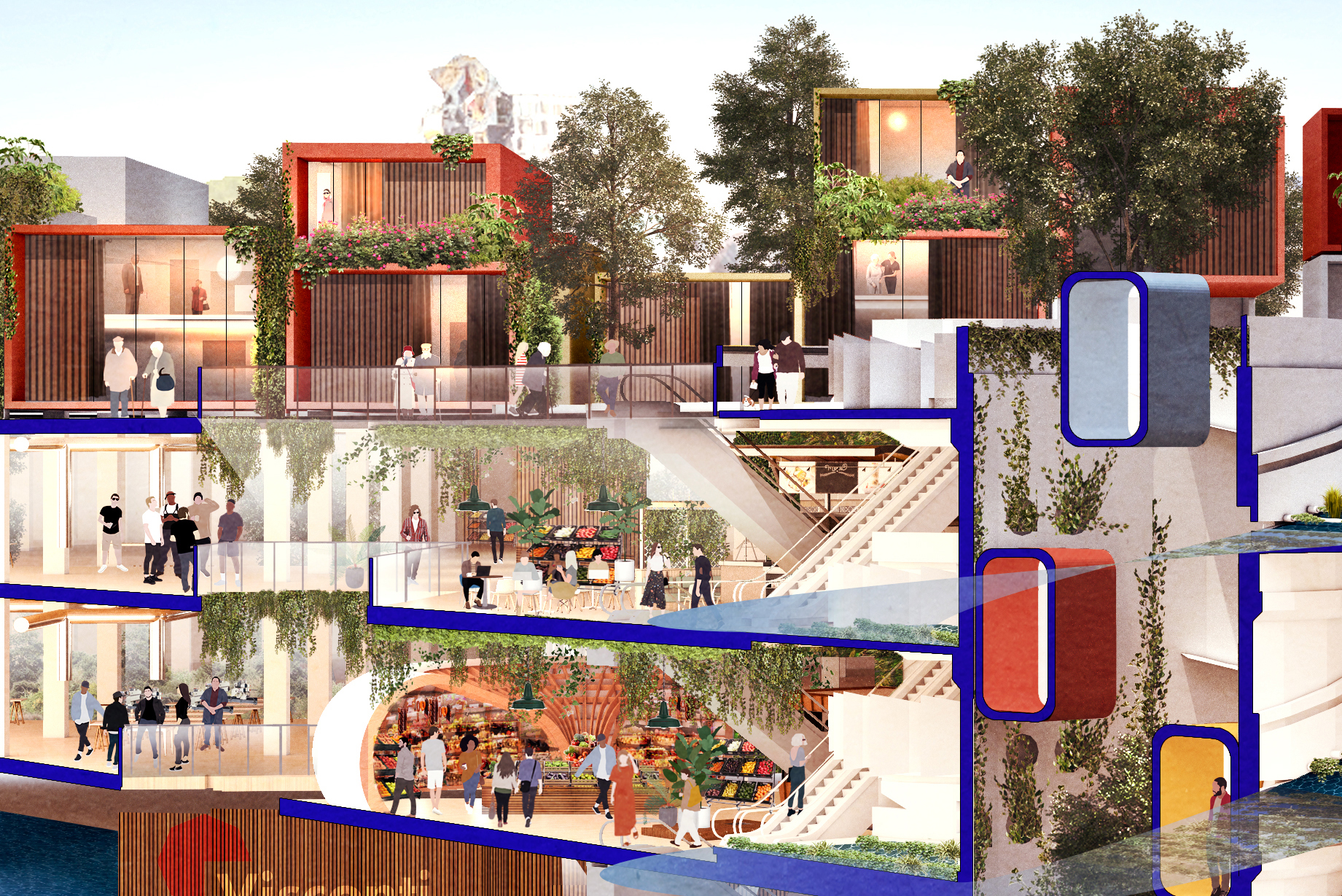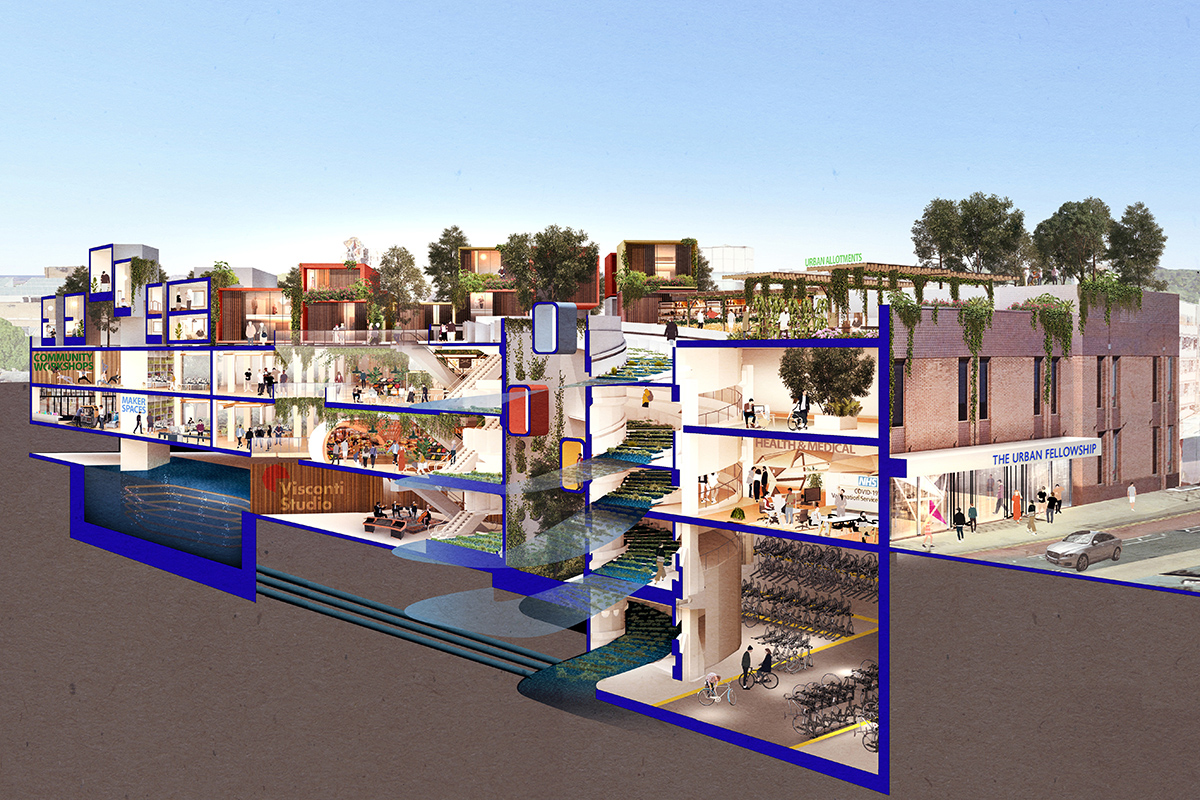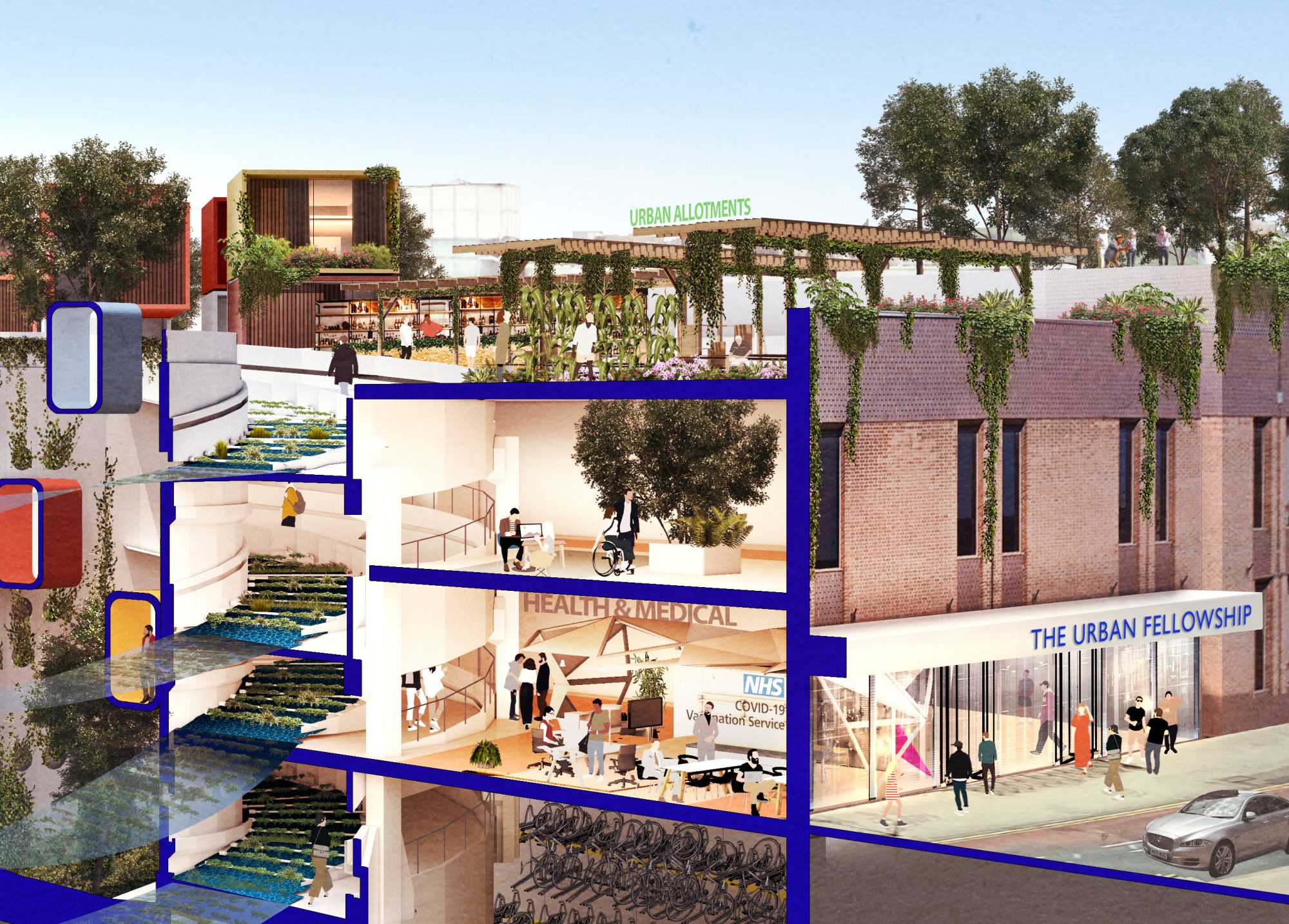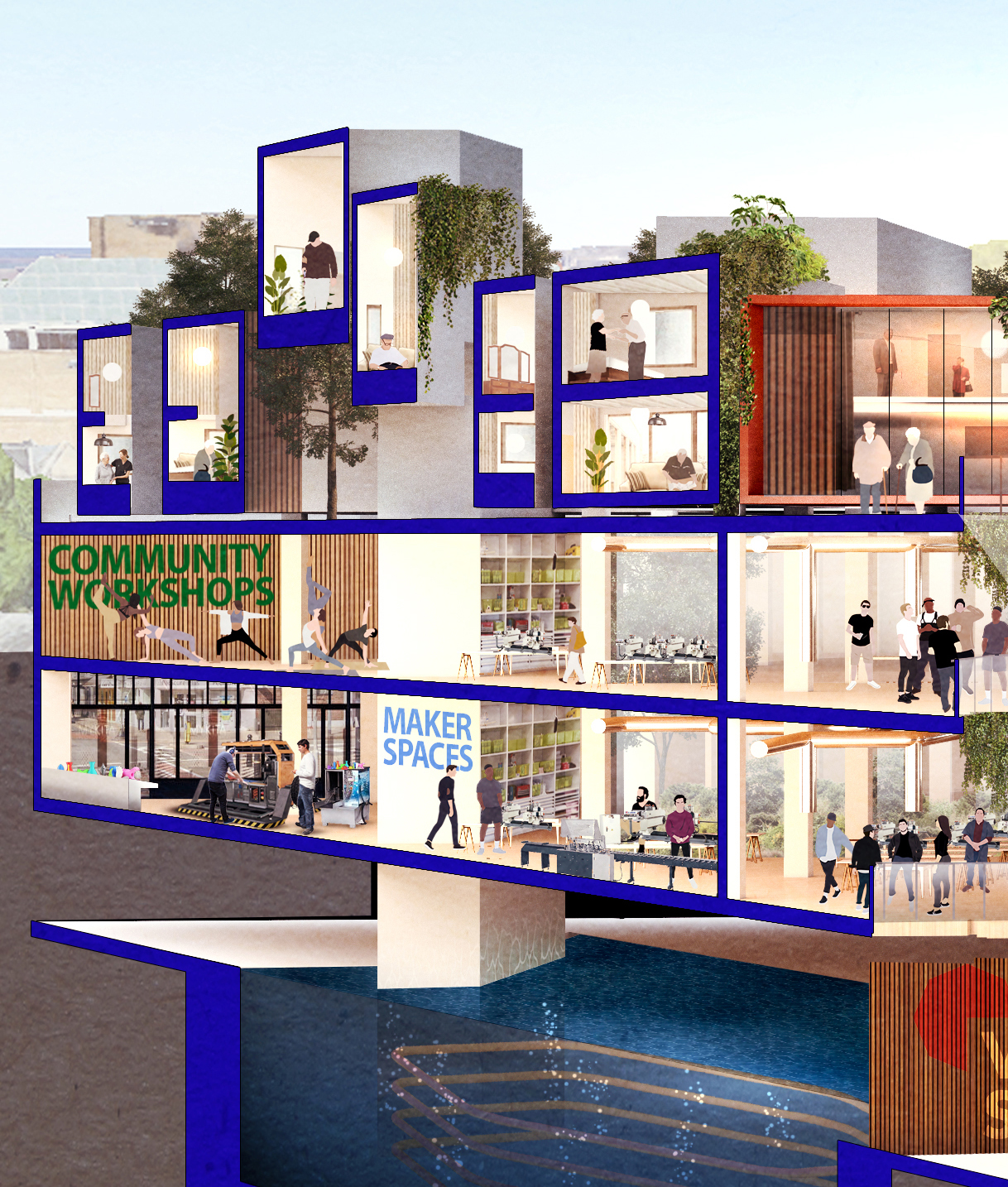The Urban Fellowship, Fathom Futures
Concept exploring the potential of redundant shopping centres for Property Week, translating a suburban retail icon into a sustainable and inclusive community campus.
What’s the future for shopping centres?
Fathom were invited to submit a proposal for Property Week’s Centre Forward Design Challenge, where architects were asked to reimagine a tired 1970s shopping centre with a view to reinvigorating the UK town location.
Our idea for The Urban Fellowship translates the design principles of shopping centres into a sustainable and inclusive community campus to support shared activities across generations.
The pandemic highlighted the impact our urban environment has on loneliness and wellbeing, and the importance of an interconnected community. Combined with the challenges posed by an increasing aging population with active lifestyles, we have created The Urban Fellowship to embrace intergenerational living with an age-inclusive campus.
The design principles of shopping centres – repeated grid layout, large floorplates, vertical/horizontal circulation, high loading capacity and DDA compliancy – provide a solid rationale for conversion into an inclusive campus with a high density of footfall.
Contextualising our proposal on Kingston’s Eden Walk centre, The Urban Fellowship prioritises sustainability, wellbeing, shared activities and long-term relationships with the community.
The ‘shop floor’ levels provide a mix of civic uses from a neighbourhood health centre supporting the local NHS hospital to education spaces for Kingston University. Curated activity encourages a collaborative culture exchange between older and younger residents: a tech store offering digital literacy programmes to help older people stay connected; maker studios where skills can be passed onto apprentices and new hobbies can be learned; event spaces for public talks and activities to promote the transfer of information between generations.
Collaborations with nearby institutions like Visconti Studios – who preserve analogue recording culture – can train future generations in skills such as music production.
At roof level, urban allotments enable community food production with produce sold or eaten in a food market at the heart of the campus. Contemporary homes for older people, based on almshouse principles to foster connections and interaction, are created in landscaped village clusters.
Nutrient film hydroponics use the slope of basement car ramps to create constant water flow for growing salad leaves and herbs, with run-off draining into a huge water energy store in the basement, using the thermal mass of concrete walls and slab to provide a sustainable source of heating/cooling.
You can read the full article in Property Week here
